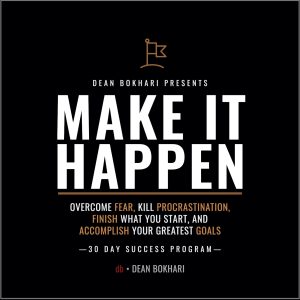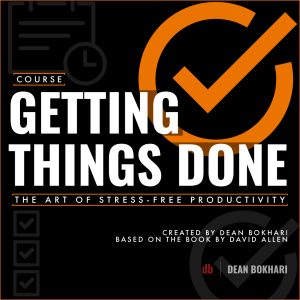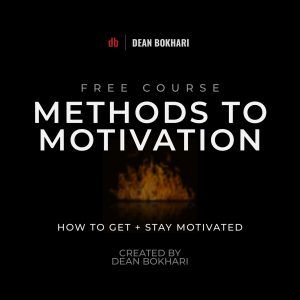How indispensable do you believe yourself to be …to your employer? …to your customers? …to anyone you rely on to regularly exchange value with?
If you work for a company—are you indispensable, or are you easily replaceable? How hard would it be for your employer to find someone that can do what you can do, but for less?
If you run your own business—are your products and services indispensable, or can they be easily replaced or replicated? How hard would it be for someone in your space to provide customers with something similar or better, but for less? How hard would it be for a newcomer to enter your space and render your current business-model obsolete?
If you’re a surgeon, how many more years do you think you’ve got before a robot can perform the same surgeries you specialize in, but with more precision?
(Cue Mr. T voice… Ain’t nobody safe in this world!)
You see, it really doesn’t matter who you are, or what you do, if you’re not constantly and consistently looking for ways to upgrade your skills, then you will eventually become dispensable.
The way to counteract that, is to ensure you do everything within your control to show your company or customers how indispensable you really are—how essential and valuable you are to them.
So how do you do that?
For me, when I think about ‘indispensability,’ my mind defaults to thinking in terms of being an indispensable professional… For example:
- If you’re an employee—your goal might be to become an indispensable member of your division or company.
- If you’re an entrepreneur—your goal might be to be a provider of products or services that are an indispensable part of people’s lives.
But the ideas I’m sharing can be just as easily applied to your personal life as well… For example:
- If you play sports—you would likely want to prove yourself to be the fastest/strongest/smartest person playing your position, thus making you an indispensable part of the team.
- If you’re in a romantic relationship—you obviously need to ensure that you and your partner see one another as indispensable – absolutely and unconditionally in love with one another.
For the sake of this article, though, we’ll be looking at how to make yourself indispensable in your professional life—at work or in business.
How to Make Yourself Indispensable (2 Key Areas You Must Develop)
1. Develop a thirst for KNOWLEDGE.
Always be learning. There are tons of ways to get your knowledge-game up… You can read books, find role models, take a few courses, go to seminars, or watch videos. The list goes on and on.
Here are a few of my best suggestions on gaining knowledge as it pertains to making yourself an indispensable asset in the workplace or in the marketplace:
- Find the top 5 books in your industry. Then, read them all, highlighting and taking notes on the best big ideas and actionable insights you can find from each book. Ask yourself the following questions during and after you’re done reading: What, if any, common principles did I find in these books? Are the authors describing the same things in different words? How would I summarize each book in one sentence? What’s at least one actionable insight from each book that I can apply immediately? By the time you’re done, you’ll know more than 90% of the people in your industry.
- In addition to learning about everything in your industry, I’d also suggest learning what some people call “soft-skills,” like: public speaking, writing, and selling.
Now you’ve got two great ways to feed your mind and develop your knowledge. But knowing more isn’t going to teach you how to make yourself indispensable. Knowledge is not enough. There are far too many people who know a lot, but do too little…
In his great book, Linchpin: Are You Indispensable?, Seth Godin puts it this way:
”Depth of knowledge is rarely sufficient, all by itself, to turn someone into a linchpin.”
So, what’s missing?
In addition to developing a thirst for knowledge, we’ve also got to…
2. Develop a willingness to APPLY it.
If you want to know how to make yourself indispensable, you must develop a thirst for KNOWLEDGE and a willingness to APPLY it.
I was at a business conference recently that cost $1,200 per person to attend. It was a four hour conference. After the first 45 minutes, one guy got up, grabbed his stuff, and left… I thought he needed to take a bathroom break, but home-boy never walked back into the conference hall.
I couldn’t help but wonder—why did this dude drop $1,200 to walk out before the first quarter?
After the conference, I saw him in the lobby, ferociously typing away on his laptop… So out of curiosity, I walked up to him and said, “I couldn’t help but notice that you got up and left less than an hour into the seminar…“ Before I could finish my sentence, he looked up from his laptop, with a slight grin forming on his face, and said, “When you learn something valuable, you need to take immediate action on that shit.”
Here’s a simple tip that will change your life: as soon as you learn something new and important, figure out how you can apply it immediately.
It’s a lot like getting a good idea—practical wisdom tells us that the mind is better at coming up with ideas than it is at storing them—if we don’t write them down immediately, we might lose them.
Being willing to learn is the first step to becoming indispensable, but unless we follow those learnings with immediate action (or, at least, plans for taking action in the future), we’ll probably lose out on some incredible opportunities.
Knowledge is nothing without action.
I’ve got a friend who dreams of quitting his corporate gig and starting his own business. He’s read every best-selling business book out there, but continues to stop himself from starting his own… He’s got the knowledge, but lacks the willingness to apply that knowledge.
I know scores of unsuccessful geniuses—they’re smart, but they’re scared…
They may know what to do. They may know how to do it.
But they simply aren’t willing to apply any of that knowledge in the real world.
Why?
There are millions of reasons why people don’t take action, and almost all of them lead back to fear… And this is what keeps geniuses in the basement, while the guy with a bias to action takes the elevator up to the c-suite.
One guy feels fear and hides, while the other feels fear and manages to muster up the courage to reveal himself. They both feel the fear. But only one of them takes action.
What’s important is that you take action. What’s important is that you get going. What’s important is that you feel the fear and take action anyway.
Here are a few suggestions to start:
- Remember the suggestions I gave you earlier—about developing a thirst for knowledge? How can you turn that knowledge into action? You could look for opportunities to speak to groups of people about your industry. You could start an industry-relevant blog and publish your thoughts and ideas regularly (PS: this is probably the most valuable thing you can do).
- If you run your own business, be the one who initiates action immediately upon learning a new technique or tactic or principle that could have a measurable impact on your business.
- If you work for a company, be the one who volunteers to test things first. When your boss gives you advice, apply it and report back with results. And finally, don’t be afraid to speak up and offer your input or ask questions. It seems that the modern corporate game-of-thrones environment tends to value those that speak up and position themselves as assertive. Even if those people are idiots… an idiot who speaks up still contributes more than a genius who keeps quiet—even if the only contribution he makes is to set an example of what not to say.
You’ve got to be willing to apply what you learn. This means leaning into fear. It means taking strategic risks. It means being willing to do what you don’t know how to do, so that you can grow into becoming the best at what you do.
Here’s the bottom line:
If you wanna know how to make yourself indispensable, you’ve got to: (1) develop a thirst for knowledge and (2) a willingness to apply it.
Write that down with a big fat sharpie and post it up so you see it every single day.


